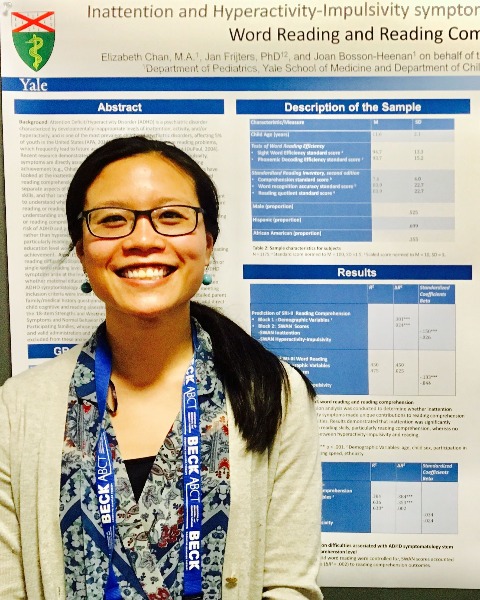ADHD - Child
Does Central Executive Training (CET) and/or Inhibitory Control Training (ICT) Improve Emotion Regulation for Children with ADHD?
(PS11-A25) Does Central Executive Training (CET) And/or Inhibitory Control Training (ICT) Improve Emotion Regulation for Children with ADHD?
- NG
Nicole B. Groves, M.S.
Doctoral Candidate
Florida State University
Tallahassee, Florida 
Elizabeth SM Chan, M.A., M.S.
Doctoral Intern
Kennedy Krieger Institute
Tallahassee, Florida.jpg)
Carolyn Marsh, B.A.
Graduate Student
Florida State University
Tallahassee, Florida
Fatou Gaye, M.S.
Graduate Student
Florida State University
Tallahassee, Florida- EJ
Emma Jaisle, B.S.
Graduate Student
Florida International University
Tallahassee, Florida 
Michael J. Kofler, Ph.D.
Associate Professor
Florida State University
Tallahassee, Florida
Author(s)
Co-Author(s)
In addition to the cornerstone diagnostic characteristics of inattention and hyperactivity/impulsivity, approximately 48-54% of children with Attention-Deficit/Hyperactivity Disorder (ADHD) have difficulties with emotion regulation that are not ameliorated by current first-line psychotherapeutic or pharmacological treatments for ADHD (Graziano & Garcia, 2016). Working memory and potentially inhibitory control have been linked functionally, if not causally, with ADHD-related emotion dysregulation (Groves et al., 2020, 2021; Sjowall et al., 2013; Tarle et al., 2021), suggesting that they may reflect promising intervention targets for producing downstream improvements in emotion regulation for children with ADHD.
The present study tested the extent to which two cognitive training protocols that have been previously shown to improve working memory (Central Executive Training/CET) and inhibitory control (Inhibitory Control Training/ICT; Kofler et al., 2020) can improve emotion regulation for children with ADHD. The sample was comprised of 94 children aged 8-13 years (M = 10.22, SD = 1.43; 76% White/non-Hispanic; 29 girls) who were randomized to 10 weeks of either CET or ICT treatment. We hypothesized (a) both groups would demonstrate improved emotion regulation following treatment, and that (b) CET would result in greater improvement given previous basic research (Groves et al., 2021).
Results of Bayesian mixed model ANOVAs indicated both treatment groups demonstrated a significant decrease in emotion dysregulation from pre- to post-treatment based on both parent (BF10 = 1.34x1014; p < .001; h2p = 0.28, d = 1.25) and teacher report (BF10 = 1.05x107; p < .001; h2p = 0.22, d = 1.06). However, across all models, there was no evidence that one treatment outperformed the other (i.e., no significant treatment x time interaction; all BF10 < 3, p > .05). Sensitivity analyses are underway to examine the extent to which non-treatment factors (e.g., parent expectancies, teacher knowledge of study participation) may have impacted improvements in emotion regulation. These additional results will be presented at the conference.
Results of this study following investigation of potential alternative explanations of treatment effects have the potential to inform whether deficits in working memory or inhibitory control are casually linked to ADHD-related emotion dysregulation, and may provide information regarding the efficacy of executive function training to improve emotion regulation in ADHD. Such knowledge is integral to the development of precision medicine approaches to treatment for ADHD and its associated difficulties. Ameliorating emotion dysregulation in pediatric ADHD is critical for ADHD treatment, including prevention of and response to mental health crises. Improved emotion regulation for children with ADHD may mitigate impairment related to this common childhood disorder, including academic and social problems (Bunford et al., 2018; Classi et al., 2012; Qian et al., 2016), higher rates of health care utilization (Classi et al., 2012), higher daily parenting stress (Walerius et al., 2016), and increased risk for the development of comorbid psychopathology (Steinberg & Drabick, 2015).

